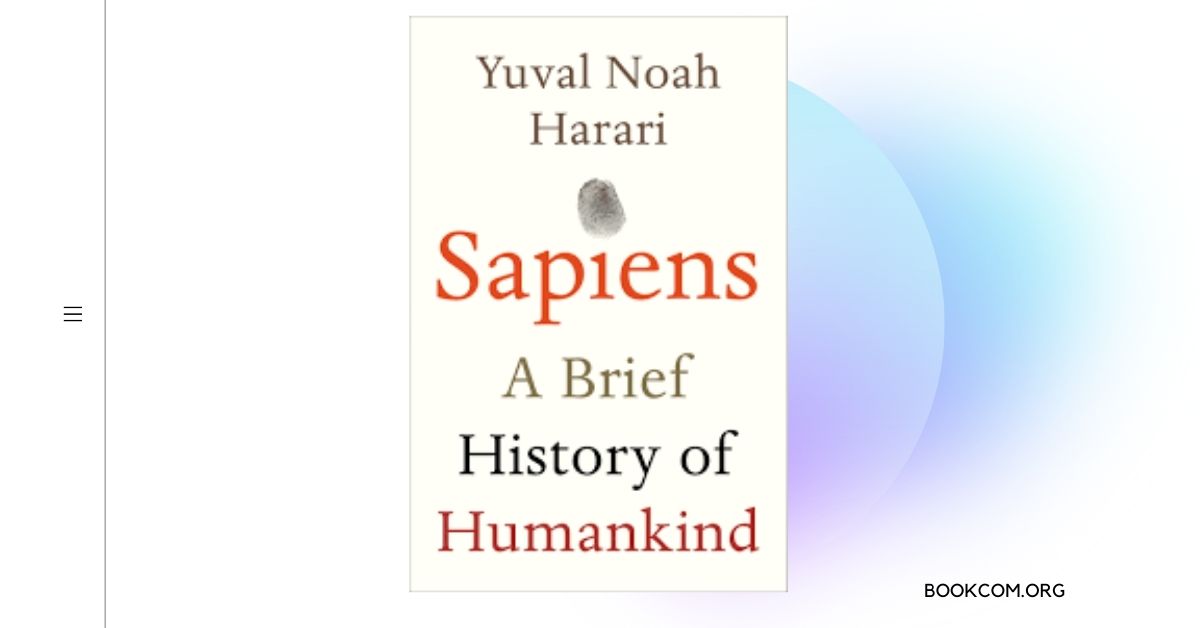“Sapiens: A Brief History of Humankind” by Yuval Noah Harari is a thought-provoking and insightful exploration of the history of Homo sapiens, from the emergence of our species in Africa to the present-day dominance of Homo sapiens as the most powerful species on Earth. Harari combines anthropology, biology, history, and philosophy to provide a comprehensive overview of the key developments, revolutions, and cognitive leaps that shaped human history. This summary will delve into the main themes, significant historical events, and notable takeaways from the book, highlighting the author’s analytical approach and thought-provoking perspectives.
Key Themes
Cognitive Revolution: Harari delves into the Cognitive Revolution, a key turning point in human history, where Homo sapiens developed the ability to think and communicate using complex language. This cognitive leap allowed humans to form large, cooperative groups and share information, leading to the rise of language, culture, and collective imagination.
Agricultural Revolution: The Agricultural Revolution marked the transition from hunter-gatherer societies to settled agricultural communities. Harari explores the profound impact of this revolution on human societies, including the rise of permanent settlements, the development of farming practices, and the subsequent growth of population and social hierarchies.
The Myth of Progress: Harari challenges the notion of continuous progress throughout human history. He argues that while humans have made remarkable advancements in science, technology, and civilization, these developments have also brought about unintended consequences and ethical dilemmas, such as environmental degradation and societal inequality.
The Rise of Homo Sapiens: Harari investigates the factors that led Homo sapiens to become the dominant species on the planet, surpassing other human species like Neanderthals. He explores the role of collective myths, shared beliefs, and the ability to create and adapt flexible social structures as key contributors to our success as a species.
Significant Historical Events
The Cognitive Revolution: Harari examines the transformation of Homo sapiens through the development of language and the ability to create complex societies, which allowed for cooperation, shared beliefs, and cultural norms.
The Agricultural Revolution: Harari explores the shift from nomadic lifestyles to settled agricultural communities, marking a significant change in human society and paving the way for the rise of civilization.
The Scientific Revolution: Harari discusses the impact of the scientific revolution, which challenged traditional religious and mythological explanations of the world, leading to advancements in knowledge, technology, and the rise of empirical thinking.
The Industrial Revolution: Harari analyzes the profound consequences of the Industrial Revolution, including technological advancements, the growth of capitalism, and the exploitation of resources, which transformed societies and led to unprecedented economic and social changes.
Notable Takeaways
The Power of Shared Beliefs: Harari emphasizes the role of shared beliefs, myths, and stories in shaping human societies. He argues that our ability to create and believe in collective fictions has been a defining characteristic of Homo sapiens, enabling cooperation, social order, and cultural development.
The Fragility of Human Systems: Harari cautions against assuming the stability and permanence of human systems, highlighting the impermanence of political, economic, and social structures. He urges readers to critically examine the myths and ideologies that underpin these systems to ensure their adaptability and sustainability.
The Impact of Technology: Harari explores the transformative power of technological advancements throughout history. He warns of the potential risks and ethical dilemmas associated with technological progress, urging humanity to consider the long-term consequences of our actions.
The Interconnectedness of Species: Harari emphasizes the interdependence between humans, animals, and the environment. He encourages readers to consider the ethical implications of our treatment of other species and the responsibility we have in preserving the delicate balance of the planet.
“Sapiens: A Brief History of Humankind” offers a captivating and thought-provoking exploration of human history, from the Cognitive Revolution to the present day. Harari’s interdisciplinary approach, combining history, biology, anthropology, and philosophy, provides readers with a comprehensive understanding of the factors that have shaped human societies. Through his analysis, Harari challenges commonly held beliefs and encourages readers to critically examine the narratives that govern our lives. This book is a stimulating and enlightening read for anyone interested in the story of humanity and the challenges we face in the modern world.
Also read:
Book Review: Sapiens: A Brief History of Humankind” by Yuval Noah Harari
For more information about the book, you can visit:



